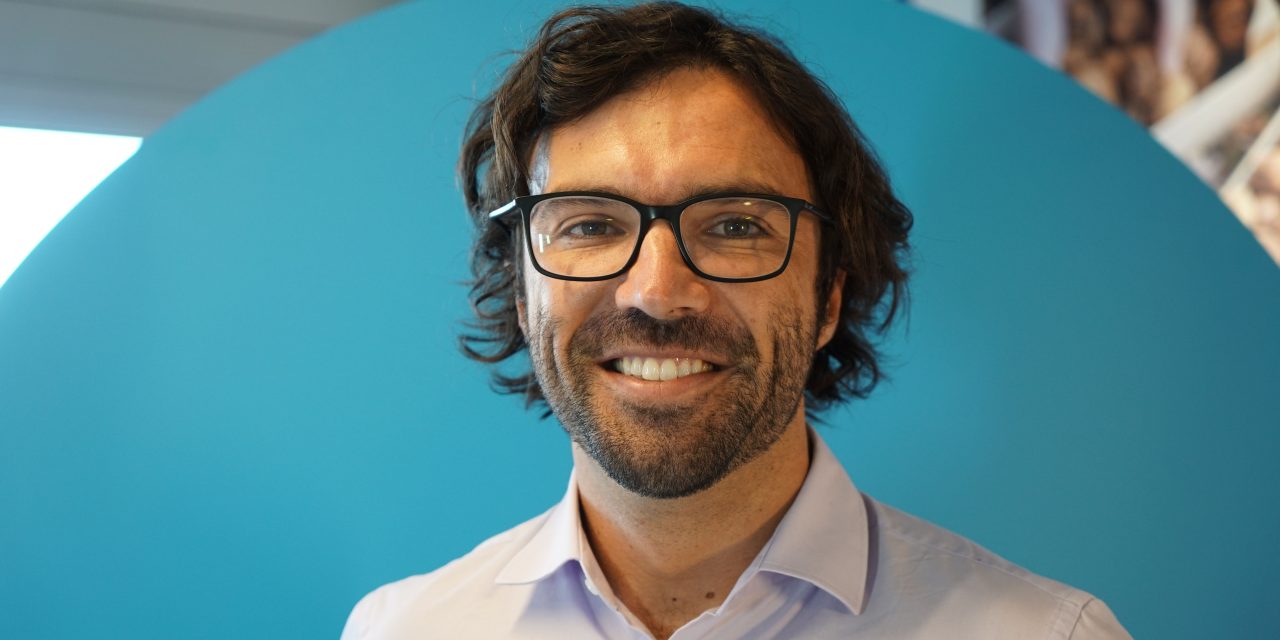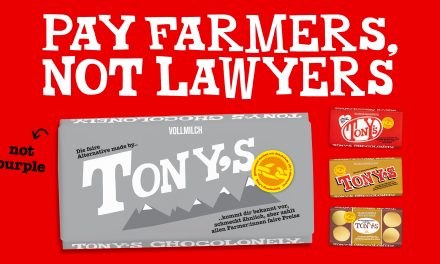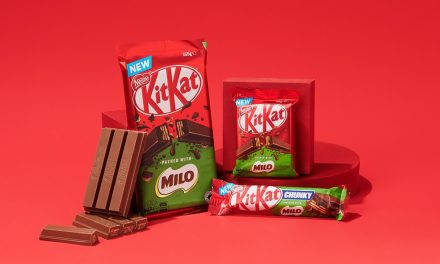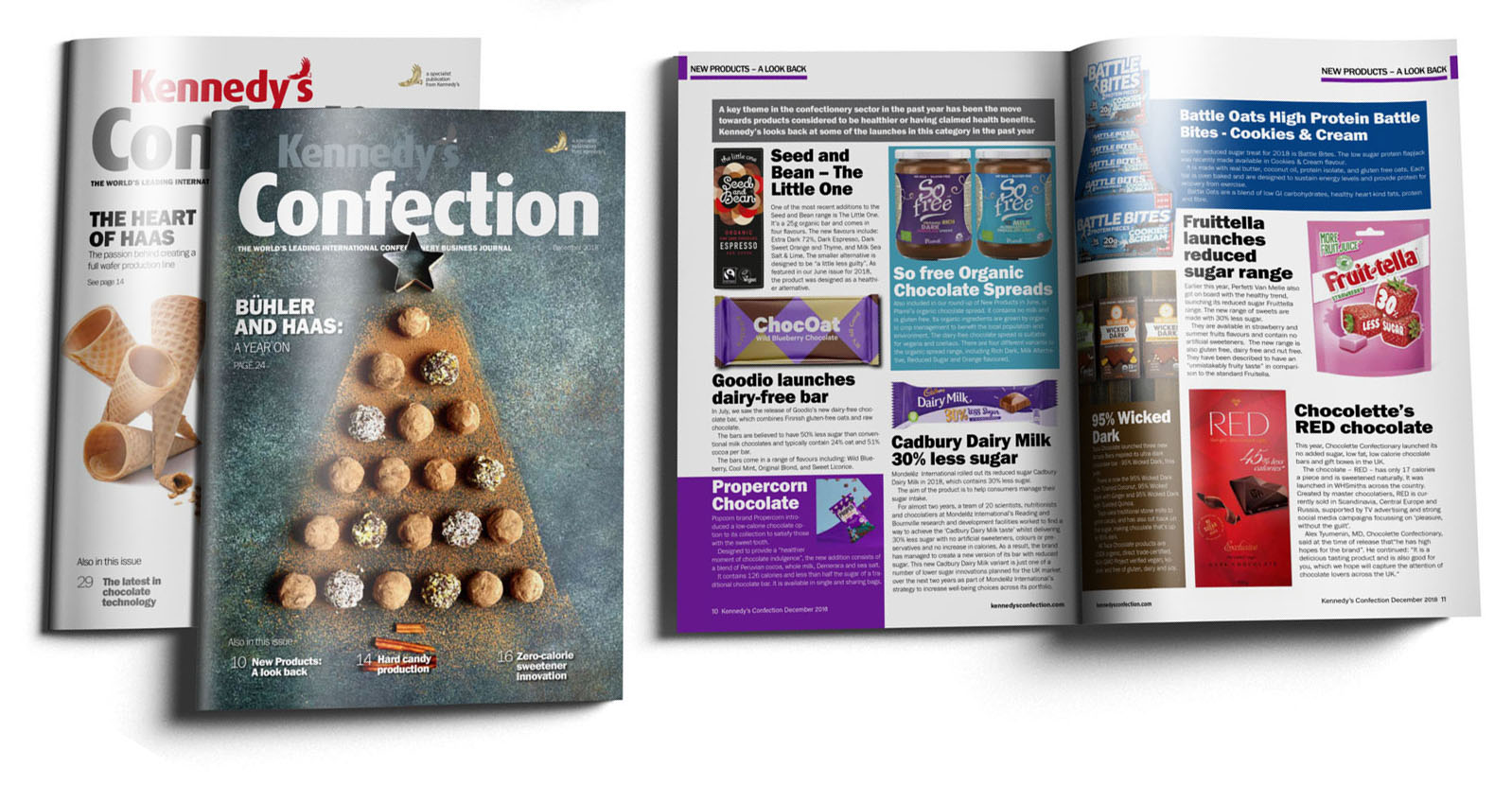Kennedy’s Confection speaks with Ken Moynihan, CEO at TOMRA Processed Food, where he tells us all about the company’s mission for a sustainable future.
Can you give us a background of TOMRA Food and its mission statement?
At TOMRA Food we are on a mission to transform and help our customers feed the world, improve yield, minimise waste, and create sustainable value.
More broadly, the whole TOMRA group of companies – Food, Collection, Recycling, and Mining – share the same philosophy: to transform how we obtain and use the planet’s resources to enable a world without waste. As TOMRA’s tagline states, we are committed to leading the resource revolution in a world where ‘Every Resource Counts’.
The background to this mission statement is simple: the global population is growing, yet the planet’s resources are limited. We urgently need to improve sustainability, develop the circular economy, and make more efficient use of resources. TOMRA’s solutions are targeted at helping address these big challenges.
Congratulations on your 50th anniversary – how did it feel to look back on the milestones and developments made at TOMRA since its inception?
TOMRA can be proud of the fact that it has grown from humble beginnings to become a highly respected global market leader. This is living proof of our ability to adapt, innovate, and provide the solutions our customers really need.
TOMRA was founded in Norway in 1972 by brothers Petter and Tore Planke. After seeing a local grocer struggle with the manual collection of empty bottles in their store, the brothers developed the first fully-automated reverse vending machine (RVM) in their family’s garage. This invention was quickly embraced by retailers and spawned an entire industry for efficiently handling the return and recycling of deposit beverage containers.
TOMRA’s pioneering and transformative approach led to its continuing development over the years, from designing and manufacturing RVMs to providing advanced sorting systems for the food, recycling, and mining industries.
The 50th anniversary is also a time to look forward, because we are now opening the chapter in TOMRA’s story where we step up our role leading the resource revolution.
Why is sustainability an important topic for TOMRA?
Sustainability is important for everyone and for the future of our planet. There’s an urgent need for technology-driven solutions to improve how we use our planet’s resources. These demand the type of solutions TOMRA provides – solutions which are in ever-greater demand as sustainability gains importance with governments, consumers, and businesses, and as the world faces the challenge of producing enough nutritious food to support our growing population.
Each of the Group’s four divisions has declared a collective mission for the future – what is TOMRA Food’s role in this?
TOMRA Food is committed to leading the resource revolution in a world where every piece of food counts. The population is growing and we do not have the arable land available to scale with it. We are on a mission to transform and help our customers to feed the world, improving yields, minimising waste, and creating sustainable value. Working closely with customers, we will continue to advance food production, one step at a time.
How has being technology-led and providing customer-tailored solutions helped to push TOMRA to become a pioneering business in sorting and solutions?
We are committed to growing with our customers as their partners, and much of that growth is driven by technology. Our customers continuously seek innovative ways to produce the products their customers demand and our role is to both support and to lead in those innovations. TOMRA invests heavily in R&D, and that R&D needs to be very close to our customers’ lives to produce the kind of innovative, customer-centric solutions that we are known for. As a result, more than 12,800 TOMRA units are installed at food growers, packers, and processors worldwide for confectionery, fruit, dried fruit, grains and seeds, potato products, proteins, nuts, and vegetables.
Why is brand strategy so important to outline the company’s future direction and role in society?
We are now presenting our brand in a way which reflects how TOMRA Food has recently reshaped its business strategy and set out on a more clearly defined path. This strategy is based on three pillars: on growth, to scale the business in a sustainable manner through innovative solutions; on excellence, to relentlessly focus on being best-in-class in everything we do; and on talent, to ensure we have the world’s best minds working on solving our customers’ challenges while taking care of our people to ensure they are excited and engaged every single day.
The brand strategy and the brand’s tagline – ‘Every Resource Counts’ – help bring clarity to our mission. They highlight the value TOMRA Food creates for customers and food production worldwide, spotlight the ambition we share with customers, and create cohesion with past business mergers and acquisitions. The brand strategy communicates our intentions to external audiences and helps all of us at TOMRA keep sight of the company’s overarching values and goals. It really captures exactly what we strive to do here, every day.
For TOMRA Food what is the next steps we will be seeing towards this new strategy?
Although TOMRA turns 50 this year, we believe that we are just getting started. Our mission to help create a world without waste is now more important than ever. We are committed to working even more closely with food processors to continuously improve and optimise food production. Focusing on customer needs and using the most advanced digital solutions, we believe we can greatly contribute to improving quality and yield while reducing food loss.
Focusing on sorting and grading, TOMRA Food is working with its customers to maximise value across the food chain, end to end. Our solutions improve the value of food from harvesting to processing and packing – and even to distribution and consumption, considering the great value of the digital tools and data we provide.
What challenges does the industry face at present that you feel TOMRA Food is equipped to create solutions for?
TOMRA Food can help food businesses, in confectionery and other categories, face a wide range of challenges. Skilled labour scarcity, higher quality demands, increasing input costs, risks of high impact food safety events – our solutions help secure food safety; improve throughput; improve yields; deliver consistently high product quality; while reducing labour costs. These solutions help food producers improve efficiencies and profitability. They also help to protect and enhance our customers’ brands.
Why is it so important to transform as a business instead of remaining inactive?
Progress requires change and innovation; I think we all understand that. This means that if you stand still in any competitive business, you will go backwards. We have become very clear with ourselves that transformation is at the heart of everything TOMRA does. Of course, our products enable and improve the transformation of raw material into valuable products, but further: we constantly look to transform ourselves to improve how we fulfil our mission. We transform companies into more profitable, sustainable businesses. And we transform how the world’s resources are obtained, used, and reused, which also helps transform people’s everyday lives.
Anything else to note?
Today’s confectionery market, like others in food, is being changed by the need for sustainability. More people are now aware that it is crucial to reduce energy use and greenhouse gas emissions and take better care of our planet’s limited resources. Retailers and consumers want to see food manufacturers addressing these concerns by implementing sustainable business practices and taking active measures to minimise food waste.
TOMRA’s sorters are already standard-setters in reducing food waste, and we are constantly pushing to improve efficiencies further by employing a range of detection technologies. Our modular systems employ high-resolution RGBI cameras, different lasers, and our unique BSI (Biometric Signature Identification), which detects the biometric characteristics of objects. Through these state-of-the-art technologies, and by precisely calibrating sorters to their food-specific applications, we work tirelessly to improve the efficiency of our systems to reduce product waste and add value for our customers.
Three sorters are particularly well-suited to confectionery applications: the TOMRA 5B, a belt machine, and the Blizzard and Nimbus free-fall machines. Belt machines are generally most suitable for distinguishing the shapes of objects on the line and for hard candies that might be too fragile to land from a free-fall. Free-fall machines, which scan and separate objects in flight, are better suited to looking for discolorations.
All of TOMRA’s sorting platforms are connectable to TOMRA Insight, a web-based data platform that gathers sorting data in near real-time and stores this securely in the cloud. Live data can be reacted to immediately (and remotely) to optimise machine settings; historical data can be processed into actionable information to unlock improvements in machine performance.
Editorial contact:
Editor: Kiran Grewal kgrewal@kennedys.co.uk







